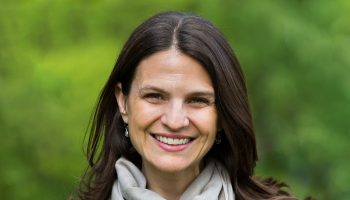MAX ZAMBRANO – STAFF WRITER
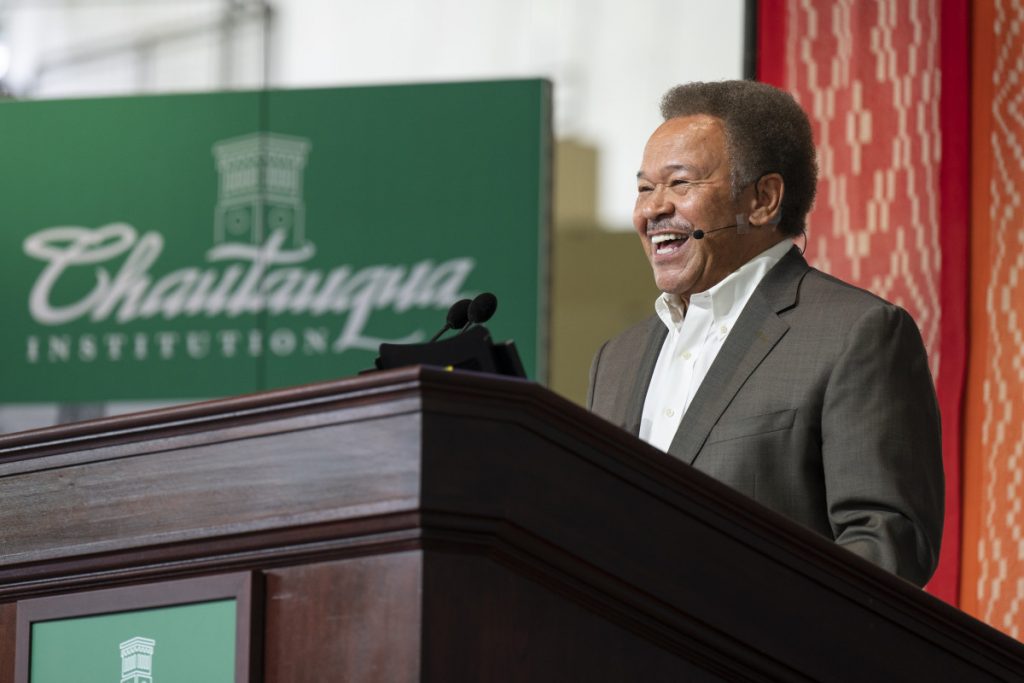
Does moral leadership matter? Can the United States repair? The Rev. Robert M. Franklin Jr. wants to know.
These were questions he asked to open his 1 p.m. Interfaith Lecture in the Amphitheater on Monday, July 12. The lecture, named after those questions, was the first of three Interfaith Lectures in Week Three, themed “The Ethical Foundations of a Fully Functioning Society.”
Franklin is the James T. and Berta R. Laney Professor in Moral Leadership and a Senior Advisor to the President at Emory University, and President Emeritus of Morehouse College in Atlanta.
Addressing a familiar Chautauquan crowd — he was director of religion here from 2014 to 2017 and presented his first Chautauqua lecture in 2000 — Franklin shared his answers to questions at hand.
Discovering what moral leaders do for communities galvanizes Franklin — he spent the last year writing a new book, Moral Leadership: Integrity, Courage, Imagination, based on notes, lectures and reflections from Chautauqua, Morehouse College and other experiences.
“This is the work that I think is the great challenge for us in this hour in history,” Franklin said.
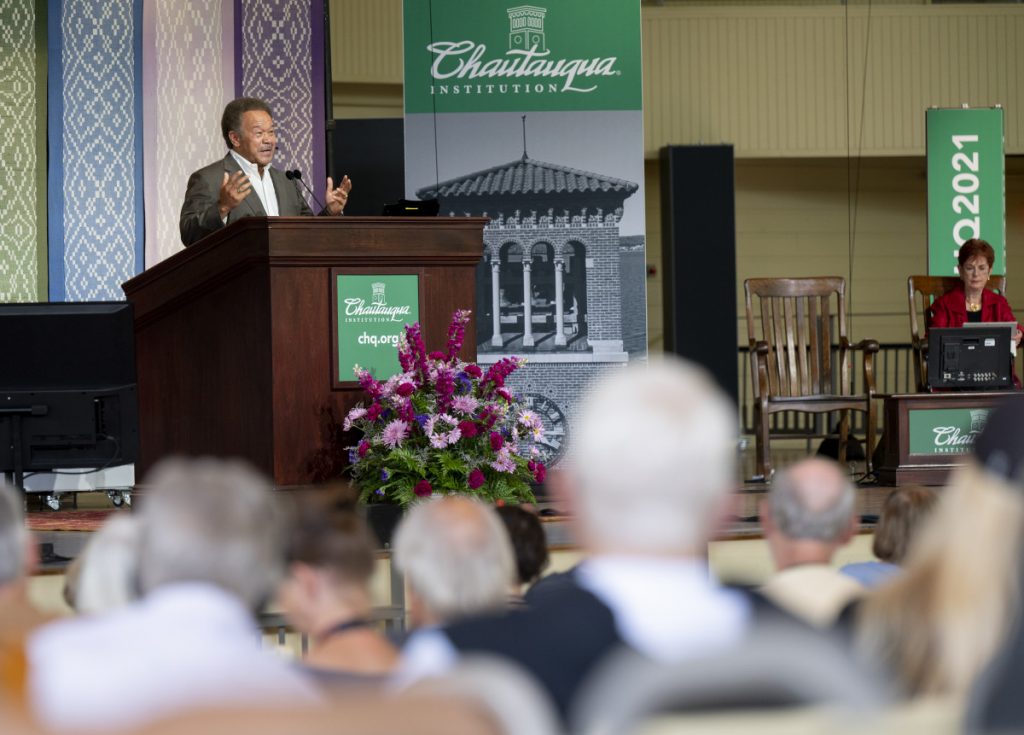
In 2020, Franklin ran for the U.S. House of Representatives, aiming to fill the remainder of the late Rep. John Lewis’ term. He ultimately lost that race, but took away valuable lessons for himself.
One thing he learned, he said, was that there existed a public demand for leaders of integrity, courage and imagination, and for people who inspire others to become better versions of themselves.
Another lesson he learned was that individuals can change the narrative of life.
“We may not be able to change the past, and there are a lot of painful stories, histories and facts that are a part of America’s past, and so much still a part of America’s present,” he said. “We cannot change the past, but we can change the value of the past. … The past can offer us gifts and can speak to us.”
Franklin said people can ask themselves what they can do for the good of their town, organization, congregation or nation to help influence or change the narrative. People need to be willing to say “no,” he said.
A third lesson Franklin learned from the campaign was people perceive politics as a land of transaction. He believes, however, that it can be based on transformation. Instead of exchanging votes for promises, Franklin said he stepped out of the religious and academic circles where he was most familiar and listened to other communities.
He also took away the notion that ordinary citizens are more important than celebrity leaders, such as Gandhi or Nelson Mandela — which is why he thinks anyone can make a difference.
Franklin looked back at the earliest of American politics. He said the early founders believed in moral leadership and virtues.
These leaders were trained in classical traditions, he said, and the works of Plato and Aristotle. In this tradition, Franklin said the smartest, strongest minds were given power and celebrated, akin to how the world’s best athletes will be celebrated at the Tokyo Olympic Games later this month.
Conversely, these founders also believed in covenant traditions, or that God promised to love no matter what. Here, one doesn’t have to be the best in any category to participate, Franklin said.
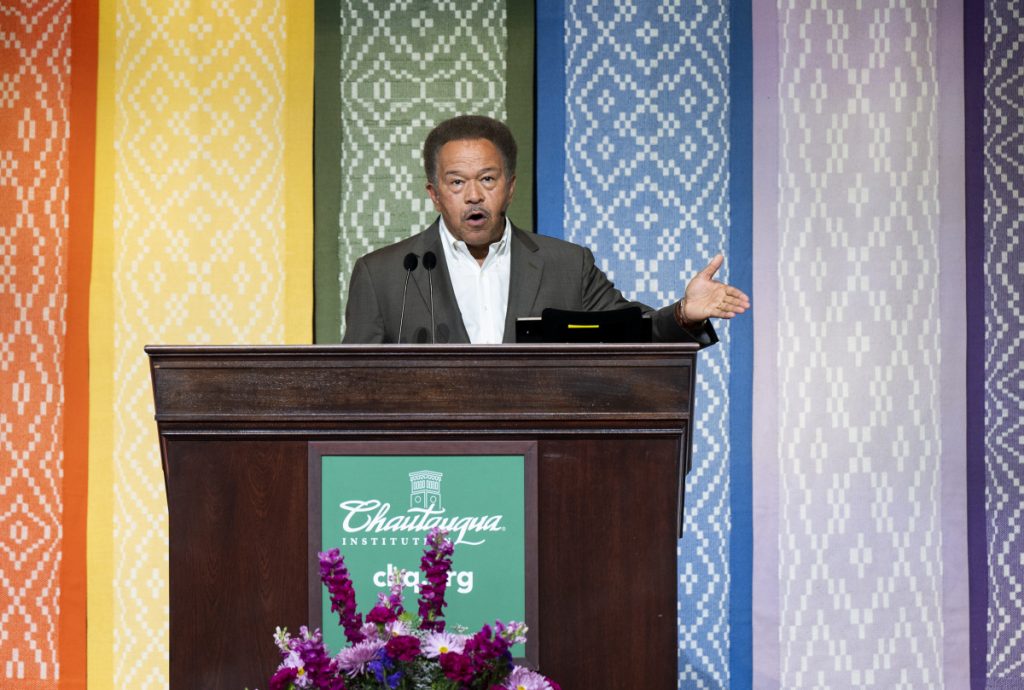
“It’s wonderful we have these two vast storehouses of intellectual resources to draw from,” he said.
When thinking of celebrity leaders, Franklin wants people to consider beyond the most famous names and think of those in their communities who have said “no,” or resisted the status quo when they spotted wrongdoing.
“What are you going to do next?” he asked. “What will you do with what you learn here at Chautauqua for a week devoted to trust and restoring trust? What is required for a fully functioning society in Pittsburgh, Erie, Orlando, Los Angeles or Atlanta? What’s required, and how can I contribute?”
Franklin discouraged simply waiting for an electable moral leader, and instead encouraged being the moral leader. In this, he referenced Martin Luther King Jr.’s sermon based on transformed nonconformists.
“This hour in history needs a dedicated circle of transformed nonconformists,” wrote King. “The saving of our world from impending doom will not come from actions of an adjusted majority, but from creative maladjustment of a transformed minority.”
Franklin acknowledged it is sometimes difficult, even for himself, to take on such pressure. He read a quote from Oscar Wilde that he said helps him get out of bed every morning.
“ ‘Every saint has a past, every sinner has a future,’ ” he read. “We get back out there because we all have a future.”
Franklin then turned to one of the United States’ most well-known monuments to leaders: Mount Rushmore.
Mount Rushmore was designed in the early 20th century, when the country wasn’t building much, Franklin said. He noted the four presidents on the mountain — George Washington, Thomas Jefferson, Theodore Roosevelt and Abraham Lincoln — were not the only four leaders considered.
When carving the mountain was being considered, Franklin said, builders wanted to invite people to visit the American West, or to go beyond the Mississippi River and Chicago at a time when automobiles and the family road trip were newly accessible to the American public.
Lewis and Clark and their companion Sacagawea were considered as faces to blast into the mountainside. Oglala Lakota Chief Red Cloud was also considered because of his willingness to negotiate and share land. Susan B. Anthony, one of the pioneers of women’s suffrage, was also seriously considered, Franklin said.
Instead, four presidents were selected.
“An interesting narrative emerged there,” he said. “Washington represented the founding of the nation, Jefferson the growth of the nation, Roosevelt the development, and Lincoln for his preservation of the nation.”
Franklin also expressed his disappointment in this choice: “Women and people of color could have been carved into (that) mountain.”
Mount Rushmore’s sculptor, Gutzon Borglum, was originally asked to carve three “colossal” Confederate leaders into Stone Mountain, Georgia, just outside Atlanta. Borglum, Franklin said, “had something of a prickly personality.” He did not get along with the Stone Mountain Memorial Commission or Daughters of the Confederacy, Franklin said, so he was fired and eventually picked up to design Mount Rushmore — the project he is most remembered for.
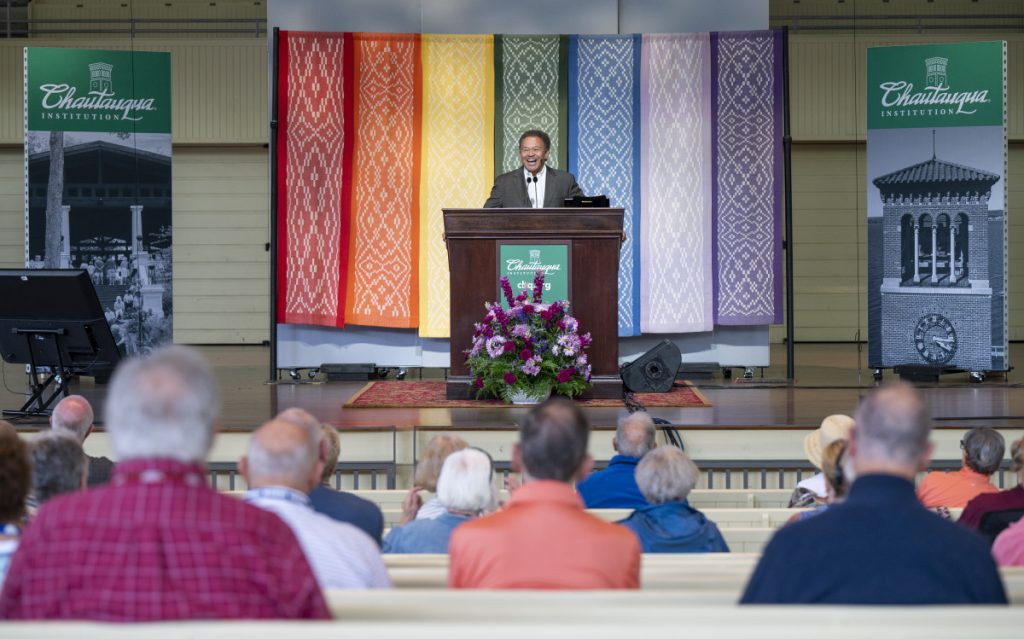
A few miles from Mount Rushmore, however, sits an uncompleted monument, the Crazy Horse Memorial, depicting Oglala Lakota warrior and leader Crazy Horse pointing to his land.
“Sometimes local memorials can be more inclusive and honest than national ones,” Franklin said.
Beyond inspiring others to be better versions of themselves, moral leaders hold people accountable, Franklin said. He mentioned Ella Baker, the only woman on the board of King’s Southern Christian Leadership Conference.
“She was the only person who could hold King accountable,” Franklin said.
Baker would push back on some of King’s ideas. She felt students should have more autonomy than what King originally wanted, and after he agreed, they formed the Student Nonviolent Coordinating Committee, Franklin said.
In Franklin’s book, he said he wrote about the importance of institutions for students who did not have moral leaders.
“Many kids are growing up in spaces with no reliable sources of authority — few caring adults or parents,” he said. “I watched, as president of Morehouse College, young men who said, ‘I grew up in a place where nobody cared that I was good at physics. It wasn’t until I arrived at Morehouse somebody noticed and celebrated.’ Institutions matter.”
Now, with a decline in trust of religious institutions and in the government, Franklin said, the business sector is emerging. He said, especially with younger people, consumers want to purchase products that express their values.
One business leader he mentioned was Larry Fink, CEO of BlackRock, who several years ago began sending annual letters to other CEOs saying businesses needed to step up if the government would not.
Fink, according to Franklin, wrote that businesses should care more about communities, climate change and race relations. Over time, more shareholders have agreed, Franklin said.
Another example was John Lewis’ New York Times letter, published on the day of his funeral, writing to young people, “Together, you can redeem the soul of our nation.”
Franklin closed his lecture asking if the U.S. can repair. There are troubling signs, he conceded by showing a map from the Southern Poverty Law Center illustrating a rise in hate groups across the country.
He sees signs of hope, however.
“One large-scale national survey showed that 77% of Americans believe that our differences are not so great that we cannot come together,” he said. “Seems to me that’s a lot to build on.”
Within the survey, he said, people on the far left or right will not soon join any unifying discussions, but the 77% in the middle are already at the table.
Turning to Americans’ understanding of democracy, he quoted W.E.B. Du Bois, the first Black man to earn a doctoral degree from Harvard University, in 1896, from Du Bois’ book The Souls of Black Folk.
“This is a beautiful world,” Franklin read. “This is a beautiful America, which the founding fathers dreamed until their sons drowned it in the blood of slavery and devoured it in greed. Our children must rebuild it.”



